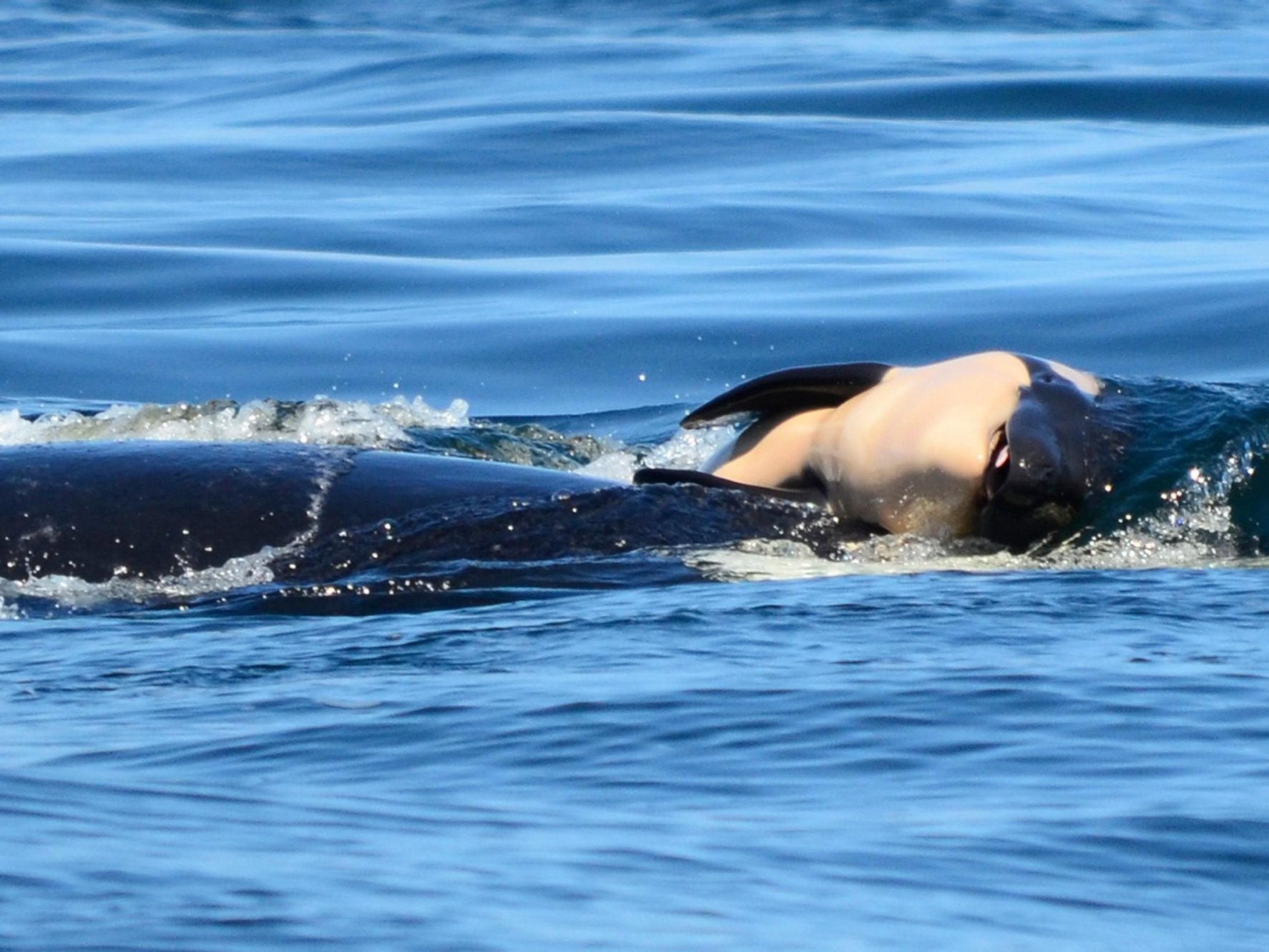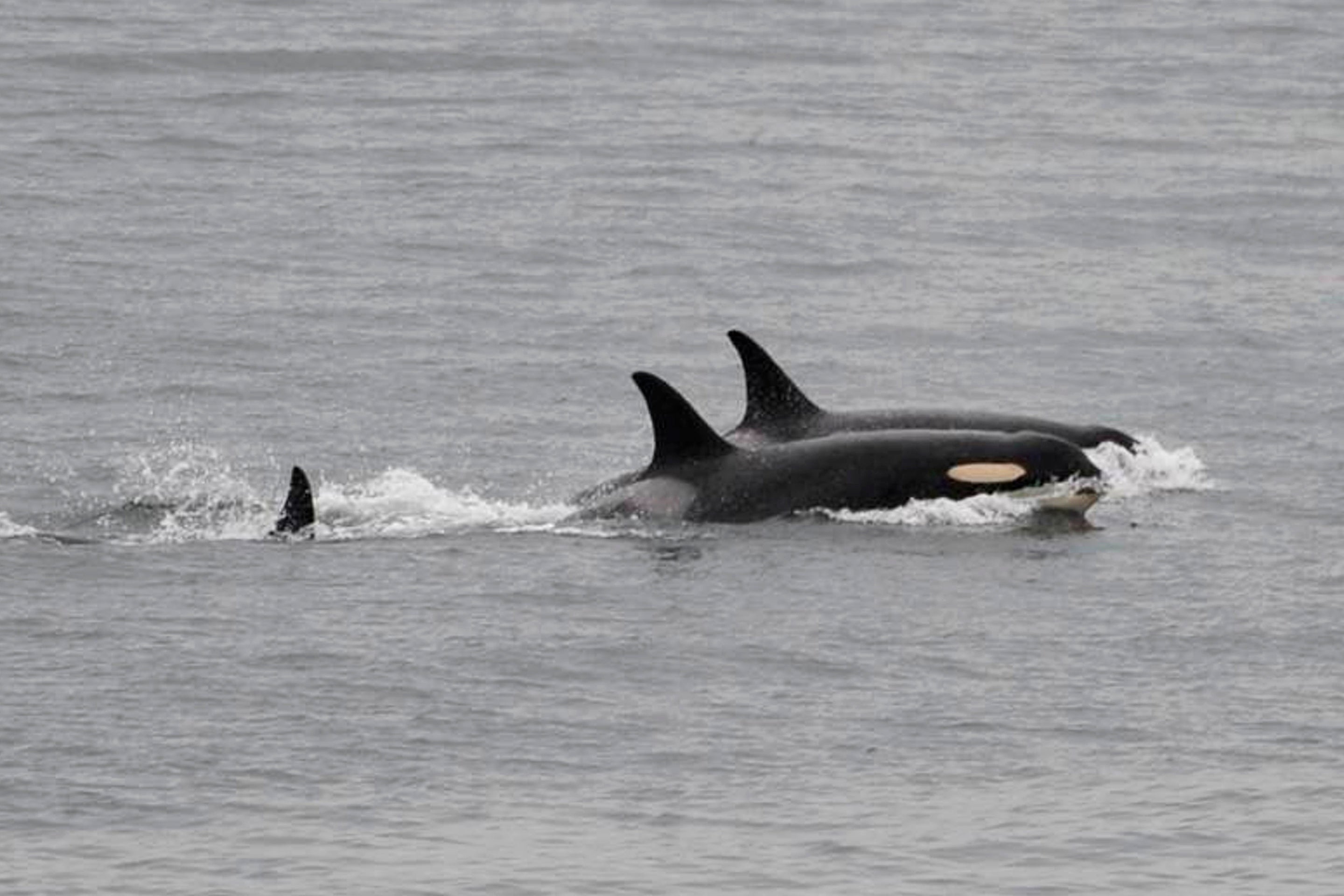Tahlequah the grieving orca has been spotted carrying another dead calf
In 2018, researchers observed the whale pushing her dead calf along for 17 days

Your support helps us to tell the story
From reproductive rights to climate change to Big Tech, The Independent is on the ground when the story is developing. Whether it's investigating the financials of Elon Musk's pro-Trump PAC or producing our latest documentary, 'The A Word', which shines a light on the American women fighting for reproductive rights, we know how important it is to parse out the facts from the messaging.
At such a critical moment in US history, we need reporters on the ground. Your donation allows us to keep sending journalists to speak to both sides of the story.
The Independent is trusted by Americans across the entire political spectrum. And unlike many other quality news outlets, we choose not to lock Americans out of our reporting and analysis with paywalls. We believe quality journalism should be available to everyone, paid for by those who can afford it.
Your support makes all the difference.An endangered Pacific Northwest orca that made global headlines in 2018 for carrying her dead calf for over two weeks is doing so once again following the death of her new calf, in another sign of grief over lost offspring, researchers said.
The mother orca, known as Tahlequah or J35, has been seen carrying the body of the deceased female calf since Wednesday, the Washington state-based Center for Whale Research said in a Facebook post.
“The entire team at the Center for Whale Research is deeply saddened by this news and we will continue to provide updates when we can,” the post said.
In 2018, researchers observed J35 pushing her dead calf along for 17 days, propping it up for more than 1,000 miles (1,600 kilometers). The calf had died shortly after it was born, and the mother and her closely knit pod of whales were seen taking turns carrying the dead body.
The research center said roughly two weeks ago that it had been made aware of the new calf. But on Christmas Eve, it said it was concerned about the calf's health based on its behavior and that of its mother. By New Years Day, the center was receiving reports that J35 was carrying her calf’s dead body.
Calf mortality is high: Only about 1 in 5 orca pregnancies result in a calf that lives to its first birthday.

The center described the death of J35's calf as particularly devastating — not only because she could have eventually grown to give birth and bolster the struggling population, but because J35 has now lost two out of four documented calves.
The population of southern resident killer whales — three pods of fish-eating orcas that frequent the waters between Washington state and British Columbia — has struggled for decades, with 73 orcas remaining. They must contend with a dearth of their preferred prey, Chinook salmon, as well as pollution and vessel noise, which hinders their hunting. Researchers have warned they are on the brink of extinction.
Southern resident orcas are endangered, and distinct from other killer whales because they eat salmon rather than marine mammals. Individual whales are identified by unique markings or variations in their fin shapes, and each whale is given a number and name.
Traveling together in matrilineal groups, the orcas at times can be seen breaching around Puget Sound, even against the backdrop of the downtown Seattle skyline.